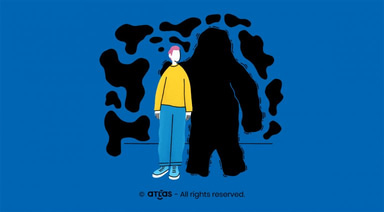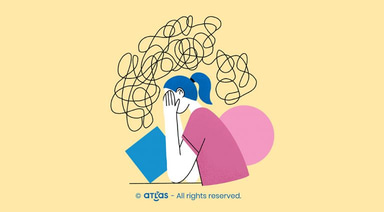The depressive episode may occur when you receive a diagnosis of disease with a high disability degree. A good example, and very often encountered, is the diagnosis of cancer. Feeling scared and anxious is a normal reaction when you receive bad news. But what happens when the symptoms of anxiety and depression hide a medical problem?
Psychiatric Times, a monthly journal followed by over 50.000 psychiatrists everywhere, recently published a (partial) list of 47 medical diseases that present initially in the form of anxiety.
- Vertigo
- Asthma
- Myocardial infarction
- Cushing’s disease
- Irritable bowel disease (IBS)
- Peptic Ulcer
For a complete list, take a look at the official website of the Medical Journal.
This list was created to attract the attention of specialists in connection with the possibility that certain patients seeking or under treatment for anxiety or depression may have a medical condition to be addressed.

In one study, which had in question 2.090 patients, primary physicians failed to diagnose medical illness, which brought depression and anxiety to the fore, to 32% of those involved. The success rate of the psychiatrists to detect the root of the problem was slightly higher, 48%. People who have a mental disorder may present an increased risk of having a medical problem like breast cancer.
The treatment of the medical condition should start immediately. This way, emotional (and physical) symptoms of anxiety are also improved.
Another case study published in the Medical Journal of Psychotherapy and Psychodynamics, with researchers from Italy and the US, noted that a neurological disorder such as multiple sclerosis or Parkinson’s disease could make its presence felt through psychiatric symptoms. Neurological symptoms can manifest after a few years.
Anxiety and depression, visible in children

Approximately half of the people diagnosed with depression also have an anxiety disorder. Anxiety disorders are noticeable in children but often ignored. The motivation is that the little ones can scare easily and do not understand what is happening to them at this age.
Anxiety disorders in children may occur as (recurrent) stomach pain or sleep problems. – here we can call frequent nightmares, in some cases nocturnal paver, and bruxism, the tooth gnashing.
It is essential to talk to the child about anxiety. The child needs to know that the people around him understand his affection and do not take it into dismay. If the child is mature enough, the parent can explain the anxiety and physical effects on the body. In particular, the child needs guidance to materials that it can read on its own!
Medical aid
What happens in the body can affect the brain and vice versa. It is essential to go to a specialist so that he can correctly diagnose the medical problem.
Through ATLAS, you can get in touch with over 200 specialists-either online or at their office.
It takes 30 seconds to make an account on ATLAS and just a few minutes to match you to the right specialist for your needs!



